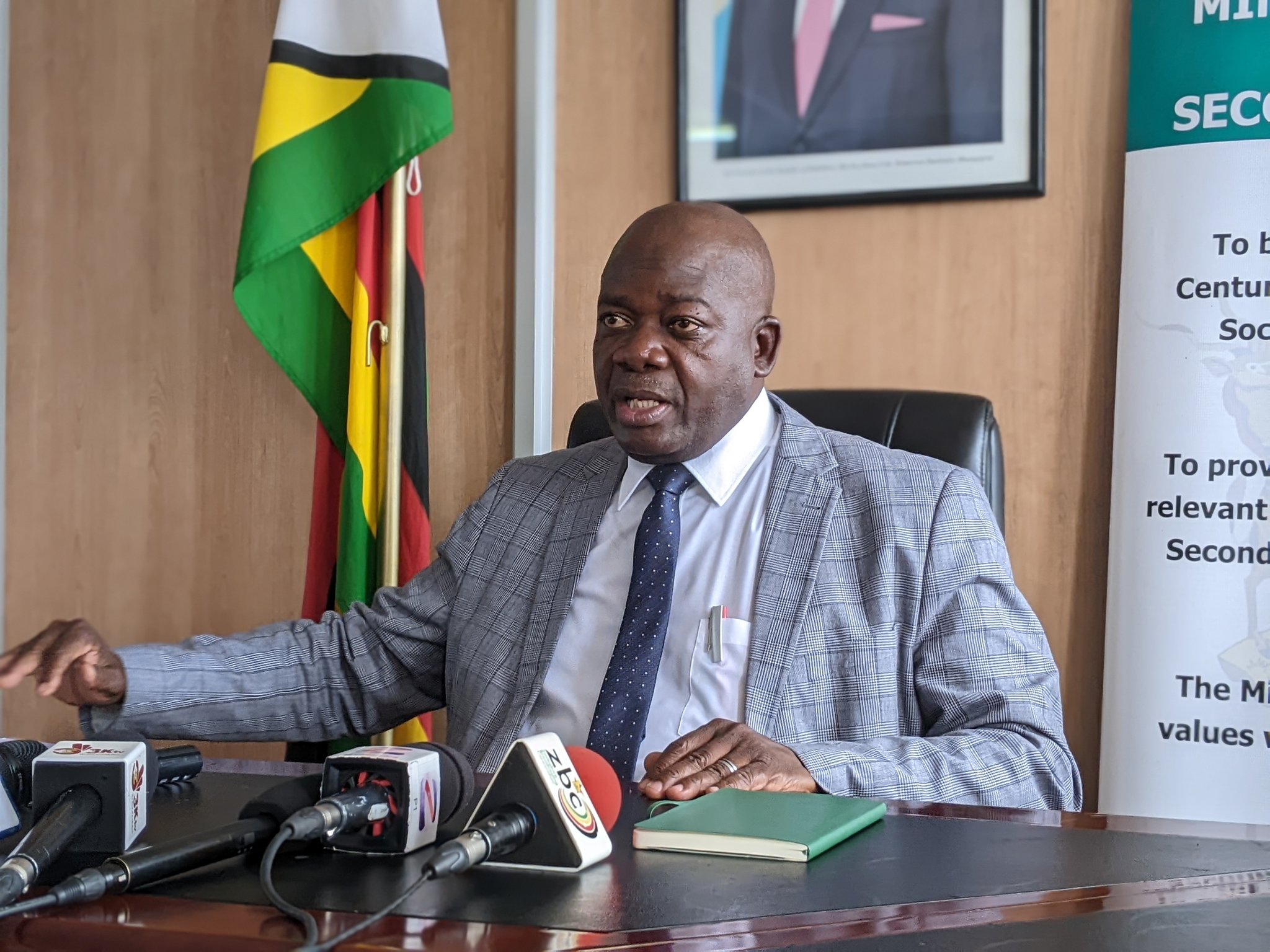BY ILYANA Sithole, ZIMBA WAVE MEDIA. HARARE
The world is in an era where fundamentals and cutting edge skills are needed for one to progress in education and meet universal standards. Usually when people sit together conversations start and debates are inevitable. One topic that is highly debatable of late is the quality of education being provided by the country’s education system.
With the national pass rate for 2023 A’levels was 94.60% and 29,41% for O’levels. Both pass rates increased by 6.60% and 4.35% respectively. University of Zimbabwe sitting at number 56 in the world.
The recent debate was sparked on Thrsday last week at St Columbus High School in Bulawayo when Minister Torerayi Moyo said, “I want to encourage you to continuously upgrade yourselves, I started with a Diploma in Education but I had to continue aiming for self-actualisation stage. I see youthful faces among you who were lucky to be promoted and are headmasters. There will come a time when we will come up with a circular to say for you to become a headmaster of a high school you must have a PhD, and for you to become a teacher, teaching in our primary schools you must have a degree” while addressing heads of primary and secondary schools, district inspector and education officials.
Apart from this statement, there has been a lot of speculation as to whether Continuous Assessment Learning Areas (CALA) projects are doing anything for the learners, raising the question to CALA or not and its effects on pass rate.
In a bid to continue providing quality education Minister Torerayi Moyo at an assessment tour of schools in Gokwe North prior to Bulawayo visit had talked about sprouting unregistered schools which are causing problems in the education sector saying, “We want to know the qualifications of teachers in such schools and to also check if they’re adhering to our circulars. So let me warn those who are operating the schools illegally that a time will come when we will close all these unregistered schools.”
With scores of unlicenced schools mushrooming across the country, it has been noted to be a development that is affecting the quality of education and the Minister says, “Our ministry has observed that there has been a proliferation of private schools which are mushrooming everywhere in high-density suburbs, low-density suburbs. In villages we hear someone say I now have a school. A school must be registered, that is the requirement”. A rain on such schools will be falling soon as hinted by Moyo to make sure that education remains too notch in Africa and the world.
On the issue of CALAs, the minister said teachers were not yet adequately trained on how to administer the CALAs leading to challenges that the concept was met with. It is part and parcel of the learning process in line with Education 5.0.
After nationwide suggestions on CALA were presented to the ministry through consultations done by the ministry. Minister Moyo said, “People made submissions on their expectations on CALA, but were the teachers trained on how they can carry out CALA assignments? We had to review the curriculum in its entirety. We may reduce the number of CALAs probably from 27 to two or one, but before we do that we want you the school heads to be trained on how CALA is conducted, then you train your teachers so that people appreciate CALA or we may decide to remove CALA and replace it with something else”.
A recent report by the World Economic Forum shows that Zimbabwe is in the top five of African Education Sector despite the opinions voiced by street debates.
There are a number of bodies regulating the education sector. They research and address issues to do with education, making sure that standards do not drop but only rise. Even with Higher and Tertiary Education, Education 5.0 universities from Zimbabwe are still in top 200. Therefore one can say the education system in Zimbabwe is still a force to reckon with and a lot will continue to be done to provide world class education.
newsroom@zimbawavemedia.co.uk




